
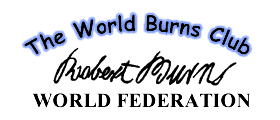
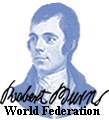
 |
 |
 |
As to his efficiency as an Officer, on 25th June 1862 he became the first Officer of the 48th Regiment to be presented with a sword and scabbard by his own men. As his N.C.O, Sergeant Hume said at the time -
"Captain Wren, I have the pleasure of presenting this sword to you as a token of respect from the members of Company B, of which you have the command, with the high appreciation of you as a man and an Officer. Take it, Captain, as a gift from your own men"
The sword and scabbard was made by Tiffany & Sons and cost $150, a substantial amount of money in 1862, and is a testament to his standing amongst his own men.
On Friday, 14th March 1862, Captain Wren was involved in the Battle of New Berne, North Carolina. The Union Army won a victory over the soldiers of the Confederate Army, which included a Regiment called the Louisiana Tigers. About 150 men from the Tigers were taken prisoner, including their Commanding Officer, a Colonel Avery.
After the heat of the battle, sworn enemies came face to face, the victor and the vanquished. Soldiers who had seen friends and comrades die at their side, blown apart by shells, horribly wounded and mutilated by enemy bullets, were coming face to face with the men who killed their comrades. How would they react?
Captain Wren's entry in his diary for 15th March 1862 tells us how he reacted
as he trudged through the battlefield to the prisoners -
"I made a visit over the battle field & thear was everything in the shape of accoutrements and arms, men lying around in all Kinds of manner and forms One rebel I saw with his hand up to his mouth with the Cartridge between his teeth, in the act of biting it & he died They lay for 4 miles this way.Among the 150 prisoners was Colnal Avery, who commanded the right wing of the fortifications, at which place he was taken prisoner and nearly all of the 150 prisoners was out of his reigmt. The Col was a fine looking fellow and a good looking soldier. His eye is enough to tell any one that he is a brave man. I asked Col Avery whear he was taken prisoner & he very gentlemanly told me & said -
'my friend,
if my Comrades had proved true to thear work as we did on the right you would
not have gotten the works so soon'
The right of the works was the last to be taken Our troops had to surround
this portion of the Line on 3 sides before he surrendered.
I looked at
him and his manly apearenc & his gentlemanly behaviour brought the words
of Robert Burns to my mind -
'a man is a man for augh that' "
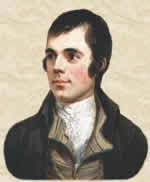
Less than
70 years after the death of the Bard, thousands of miles away, on the battlefields
of the bloodiest war in American history, the poetry of Robert Burns was well-enough
known, by a common foot soldier, that he knew the words off by heart! Not
only did he know them off by heart but the words sprang readily to mind in
the middle of the horrendous carnage of that war, when he came face to face
with an enemy Officer, and was touched by the common humanity which binds
us all. Captain Wren goes on to record -
"I asked him if he had any Breakfast & he said no he had eaten nothing since yesterday morning. They were attacted early in the morning and was engaged all day until he surrendered. I took my Haversack and gave him his Breakfast out of it and gave him a drink out of my Canteen. I asked him if he chewed & said he did but was entirely out. I gave him a plug of tobacco & he thanked me and took my name. They were all in a Brick Kiln, except the Colnal. We had no other place to put them at the time and they looked more like Indians then white men, with Brick dust. I bad the Colnel good by"
Here is a Captain in the Union Army meeting an Officer of the Confederate States, a sworn enemy and, remembering the words of Robert Burns and the meaning of the words, he treated the prisoner as a brother, broke bread with him and shared a meal. Robert Burns brought a touch of humanity to friend and foe in the middle of one of the bloodiest conflicts in history. This is just one small incident, in one isolated spot in the world, in one small period of history but Burns' poetry influenced a man's thinking and impacted on that man's behaviour to a fellow human being.
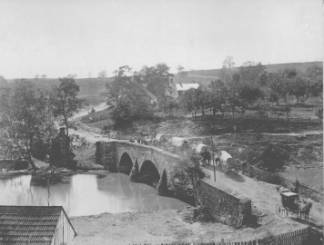
Captain Wren was also involved in the Battle of Antietam - the bloodiest battle of the war, where 8,000 men lay dead or wounded by 10:00 a.m. on September 17th ,1862. Part of his entry for that day read -
" I lay down my sword and took up the musket and I fired it until it
got so hot I could not hold it"
He tells of his visit to the field hospital. The scenes of which personify man's inhumanity to man -
"The Hospital was an awful sight, being a little house by itself & in the yard thear was 3 or 4 Large tables on it & as the soldiers were put on it the head of the Surgical Corps came along and had in his hand a piece of White Chalk & he marked the place where the Limb was to be Cut off and Right behind him was the line of surgeons with thear instruments & they proceeded to amputate. In Looking around I saw a Beautiful plump arm Laying & you could see many legs Laying in the yard with the shoes and stockings on - not taken off when amputated. In a field to the Left of this house Laying side by side with a Little inscription on thear breasts, giving thear Names & thear Company & Regt & the state they ware from, the pioneer or ambulance Corps was engaged in digging a long trench, 7 feet wide to bury them in which makes the men feal desperate towards the rebels, as many of them had brave Comrades who stood in Line with them was now taking thear position in thear Last Line"
The horror and scale of the dead and wounded made Antietam stand out in a war where horror and mass killings were the norm. Owing to his bravery and leadership at Antietam, Captain Wren was cited for promotion by his colleagues and fellow Officers and was promoted in the field to the rank of Major. This involved leaving his beloved 'B' Company and assuming overall command of all the Companies in his Regiment.
In December his Regiment was involved in the Battle of Fredricksburg, Virginia, which raged for over a week, from 11th December till 17th December inclusive. The Union losses were over six thousand men, according to the entry of 17/12/1862. His own Regiment had lost 60 men by mid-week, totalling almost 25% of its initial strength. However, the entry for December 14th provides an illuminating moment -
"we war aroused this morning by the shelling of the enemy. It Continued but a short time with our guns replying. Thear was Ceveral Vollies of musketry fired by the pickets. Thear was very little firing, today being Sunday. We camped in Catain Wells house last night. I was walking arounds last night & I Came to a Cellar whear thear was a wood fire & a lot of men & I opened the door & looked in & Captain Winlack said 'Who's that?' & they said 'Major Wren. Come in! Come in Major .' The men were Just got a Copy of Robert Burns poems and were Just reading 'The Louse on the Woman's Bonnet - the Crawlin' Thing'
To
a Louse
1
On seeing one on a Lady's Bonnet at Church
Ha! Whare ye gaun, ye crowlin ferlie!
Your impudence protects you fairly
I canna say but ye strunt rarely
Owre gauze and lace
Tho' faith I feat ye dine but sparely
On sic a place
V111
O wad some Pow'r the giftie gie us
To see ourselves as others see us!
It wad frae monie a blunder free us
And foolish notion
What airs in dress an' gait wad lea'e us
And e'en Devotion
I listened awhile & it was amusing to see what interest the Captain & the party took in it"
(Major Wren picked out only these two verses to put down in his diary - the first verse for comic effect, and the eighth verse as a comment on the war, perhaps?) Here is a little vignette from the middle of a battlefield, in a lull in the fighting, where the Bard brought some light relief and laughter to a group of war weary, battle scarred soldiers. In a world gone mad, where brother fought brother and kinfolk killed kinfolk, the poetry of Robert Burns was alive enough and powerful enough to make the soldiers forget the war for one evening and make them laugh at the absurdity of Burns' louse and Miss's fine Lunardi bonnet. The fact that his book of poetry somehow managed to find its way on to the battlefield leads to the conclusion that his poetry must have been widely available in the U.S at that time and easily accessible.
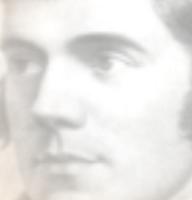 Whatever
means it came to be there by, it brought laughter and camaraderie, kinship
and brotherhood to these soldiers as they sat round the campfire. They were
friends entertaining friends, sharing their time, their food and their companionship
amid the carnage of war - a Burns Supper in the worst of conditions.
Whatever
means it came to be there by, it brought laughter and camaraderie, kinship
and brotherhood to these soldiers as they sat round the campfire. They were
friends entertaining friends, sharing their time, their food and their companionship
amid the carnage of war - a Burns Supper in the worst of conditions.
This is an extract from a little-known book which has only been published in the last 10 years. How many more incidents of Robert Burns poetry and philosophy impacting on individuals has there been, throughout the world, throughout history since 1796, that have gone unreported but nevertheless have made the world that bit better a place for it? We will never know, but knowing these two small incidents from a major historical event should hearten all Burnsians and make us realise that the philosophy of the Bard is a living philosophy. It has impacted on the people of yesterday, it is impacting on the people of today and it will still impact on the future generations of tomorrow.
Article contributed
by
JOE HARKINS (CONFERENCE COMMITTEE)
The Robert Burns World Federation
BIBLIOGRAPHY -
CAPTAIN JAMES WREN'S CIVIL WAR DIARY by John Michael Priest
BERKLEY BOOKS,
200 MADISON AVE
N.Y. 10016
PUBLISHED 1991
ISBN 0-425-13034-7
 "This
morning Broak forth with a Clear sky Hadinspection & ameditly after inspection
we received mail The 24th reigment of Mass Vol gave a kind of Matinee in frunt
of Genrel Burnsides quarters"
"This
morning Broak forth with a Clear sky Hadinspection & ameditly after inspection
we received mail The 24th reigment of Mass Vol gave a kind of Matinee in frunt
of Genrel Burnsides quarters"
|
BURNS' INFLUENCE IN THE AMERICAN CIVIL WAR
He was an intelligent but semi-literate man who could read and write but he had a definite problem with spelling, punctuation and grammar, which fell way below what would be expected of an Army Officer of today. Often erratic and seldom consistent, he tended to spell words as he pronounced them or thought they should be spelt. He kept a diary of his time in the Union Army from 12th February 1862 till 18th December 1862, which is now a valuable historical document of the internecine American Civil War. This extract from April 1862 highlights his spelling and punctuation - |